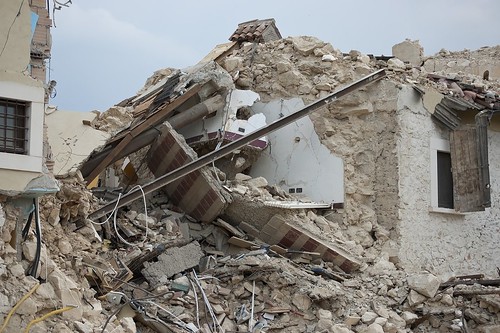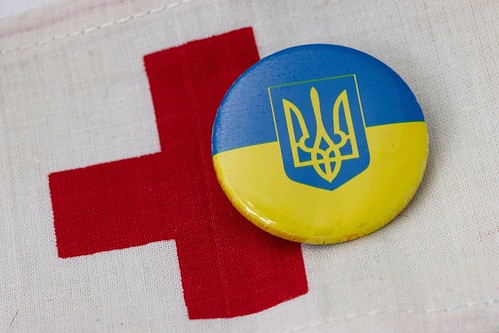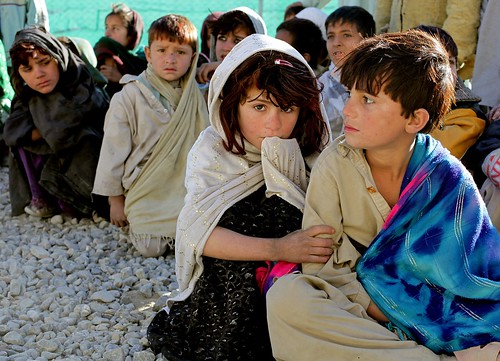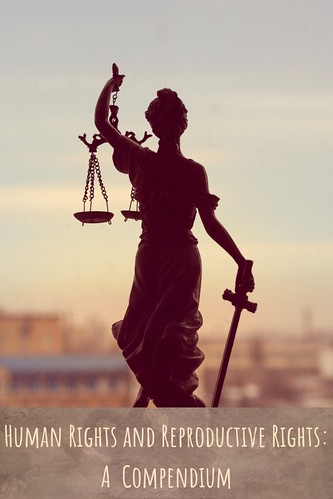Policing Bodies is a Human Rights Violation: Reproductive rights for those facing and fleeing conflict
Reproductive rights are human rights, as is having access to clean water, the freedom to express yourself, and the right to govern over your own life. On a day-to-day basis, most people will not face a direct assault on their human rights. However, for some, each new day brings with it a brutal, intentional attack that is intended to violate multiple basic rights.
This is the daily reality endured by thousands of people who are facing, or fleeing conflict.

Global conflicts
Interstate and intrastate conflicts can range from International wars to internal non-violent incidents. In 2021, there were 355 recorded instances of conflict globally; 164 were classified as violent conflicts, 20 as limited wars, and 20 as full scale wars. The United Nations High Commissioner for Refugees estimates that some 60 million people have been forcibly displaced globally, and the reality of this is that each person within a conflict situation will lose the ability to fully enjoy their human rights.
With current examples such as the Syrian Civil War and the Russo-Ukrainian War, there are millions of people globally that continue to be devastated by conflicts that destroy their homes, livelihoods, and families. This is an unimaginable reality, and for most people, it is impossible to comprehend losing everything you care for, whilst simultaneously being powerless to stop it.

The United Nations states that conflict, and situations of instability not only cause devastation, but also worsen pre-existing practices of discrimination and violence, and although sexual violence does impact both men and women, conflict has been shown to heighten instances of gender-based violence specifically against women. As such, with 58% of female homicides occurring within the home setting, conflict situations not only have a devastating impact on a woman’s ability to access social rights, but they also increase the dangers within their personal environment.
This article aims to illustrate some of the reasons that conflict has a severe impact on reproductive rights, including the delivery of essential reproductive health services, issues faced by those seeking refuge in the surrounding countries, and the international legal protections that govern them.
Reproductive rights in conflict zones
Not only does conflict increase the likelihood of gender-based violence, it also increases the need for accessible reproductive care, particularly in the face of weaponised sexual violence.
The love for a child is immeasurable, and the need to keep them safe begins before they are born. Now, imagine being unable to access the medical services that could possibly save your child's life, or if your closest medical service was hours away and across an active conflict zone. Would you make that journey? What other choice would you have?
It is crucial that all people affected by conflict have access to obstetric and antenatal care, reliable contraceptives (including emergency contraceptives), accurate information, and full wider care facilities. The destabilisation of medical care infrastructure can be one of the first barriers that jeopardises the assurance of reproductive freedoms. Since the outbreak of war in Ukraine in February 2022, there have been multiple military attacks on civilian clinics, including the shelling of a maternity hospital, as well as attempts to disrupt medical supply chains.

This destruction of civilian services violates humanitarian law, and creates an access barrier that is both physical and mental, as seeking care could now involve significant travelling whilst also including a possible risk to life. In addition to this, without foundational facilities, all aspects of reproductive health care become fragile.
Sexual Violence
The urgency of access to safe abortion and post-abortion care cannot be understated, especially for survivors of sexual and gender-based violence. Sexual violence can occur in different circumstances and in different ways, and includes acts such as rape, sexual assault, forced pregnancy, trafficking, and forced marriage. The International Committee of the Red Cross states that within conflict, the threat of sexual violence is disproportionately focused on women and young girls.

In addition to access to care, reproductive rights also extend to the right to choose when, if, and who to marry. Unfortunately, this is another area in which conflict increases the dangers posed to women. The destruction of traditional social structures within a state can result in the commodification of human beings—and in this case, it often results in forced marriages. UNICEF reported that the rate of child marriage for Syrian refugee girls in Jordan grew to 32% in 2014, in comparison to an estimated 13% in Syria before the war. This can reflect an attempt to secure economic resources, or it can also reflect a family’s desire to give a level of ‘protection’ to their daughters. However, forced marriages also have an increased likelihood of domestic violence, and sexual abuse.
Reproductive health structures
An attack on reproductive freedoms does not only apply to access to medical services. The full enjoyment of reproductive rights also includes access to sanitation services, a full educational curriculum, and the ability to seek justice in the wake of crimes.
In situations of conflict, many other vital areas of reproductive health are weakened. Without schools, and inclusive education services on sexual and reproductive health, there are considerable long term impacts, including a greater prevalence of sexually transmitted diseases and unplanned pregnancies. Conflict not only endangers people in the present, it also robs them of their futures.
The extent to which educational services are vital in reproductive health can be reinforced by the reality that UNESCO has stated only 34% of young people globally know how to correctly prevent the transmission of HIV, and only two out of three girls in certain countries understand the menstrual cycle. These statistics, in combination with the fact that, in recent years, UNICEF has stated that as many as 27 million children were out of education because of conflict, constructs a grave depiction of the growth of reproductive knowledge for future generations.

Without a foundational knowledge of reproductive health, or reproductive rights, victims of sexual violence within conflict zones are less likely to seek justice. Imagine yourself, without a safe home, unable to attend education, unable to access medical services, and with no way of knowing when, or if life will ever return to normal. It's a reality that most people would struggle to picture, partly because many people doubt it could ever happen to them, but mainly because this level of devastation is unthinkable.
Distressingly, this nightmare is the day-to-day life for so many.
International humanitarian law in armed conflicts
The human rights of all people, civilian and otherwise, are specifically protected during times of conflict.
The Geneva Conventions are four treaties and three additional protocols that establish the international legal standards for humanitarian treatment in wartime; with their proposal and consolidation between 1864-1949, they concern the treatment of prisoners, and non-combatants during war. To break the Geneva conventions is to commit a war crime, and to violate humanitarian law. The conventions, and protocols are as follows;
Convention 1 protects wounded soldiers and medical personnel who are not actively taking part in conflict, ensuring they receive humane treatment without exceptions of race, gender, sex, faith, etc. This convention prohibits torture, assaults to personal dignity, or execution.
Additionally, it establishes the right to medical care.
Convention 2 extends the initial convention to cover naval and maritime personnel.
Convention 3 extends the initial convention to cover prisoners of war, and requires only that individuals give their name, rank, and serial number to their captors.
Convention 4 extends the initial convention to cover civilians, whilst also introducing additional protections for medical transports, hospitals, and other vital civilian infrastructures. Convention 4 further discusses the treatment of a population by their occupiers.
Additional Protocol 1 further restricts the acceptable treatments of ‘protected persons’, as well as outlining conditions for the treatment of deceased persons, cultural artifacts, and targets such as dams or nuclear installations that are considered as ‘dangerous targets’.
Additional Protocol 2 gave further clarification to the ‘humane treatment’ established in convention 1, whilst establishing protections for people charged with crimes during war, and also increasing the protections for civilians
Additional Protocol 3 established the red crystal as an additional symbol for the identification of neutral humanitarian aid workers
While the initial four Geneva Conventions have been universally ratified, the Additional Protocols have not. Despite this, the conventions remain the most widely accepted instruments of law in the world.

To damage reproductive supplies and medical facilities, whether intentionally or otherwise, is a violation of the Geneva Conventions. Furthermore, the disruption or destruction of medical facilities subsequently causes the endangerment of both civilian lives, and in the case of pregnancy, the life of the unborn child. Any sexual violence, or gender-based violence is also a violation of International Humanitarian Law, under Convention 4.
This harrowing reality of violations of humanitarian law—and the consequences of unsafe reproduction in conflict zones—can be reflected by the statistic that, in countries designated as ‘fragile states’, the maternal mortality rate is 1 in 54 people.
Reproductive Health in Refuge
Even after escaping imminent conflict, there is no guarantee that the barriers to reproductive health will end, or be lessened once individuals have fled from direct threats.
After facing conflict at home and subsequently taking refuge in the surrounding countries, there is unfortunately no assurance that a new location will have any reproductive protections in place for its own citizens, let alone reproductive aid for refugees.
Imagine if this were you, and you believed that you were finally safe, only to be denied the basic health care that you had previously been able to enjoy. No person should have to choose to protect their own life at the expense of forgoing another human right.

This is the reality for Ukrainian nationals who have taken refuge within Poland due to the ongoing Russo-Ukrainian War, in which more than 90% of the estimated 4.7 million refugees are women and children.
Reproductive rights in Ukraine are relatively liberal, with abortion procedures available on request within the first 12 weeks of pregnancy, and in cases stipulated by law, within the first 22 weeks. However, these rights are not mirrored within Poland. In fact, Poland has some of the strictest abortion laws within Europe, with the only exceptions made in cases of an immediate threat to the mother’s life, or if the pregnancy is the result of a criminal act. Without suitable legal protections for foreign nationals seeking refuge from armed conflicts, escaping from one form of oppression can lead to being controlled by another.
Despite the strict laws, organisations to provide reproductive care do exist within Poland. Specifically, the woman’s rights organisation Federa has set up a hotline for Ukrainian women seeking reproductive services within Poland, with a reported 10% of the calls to the hotline being enquiries on abortion services. Thus, whilst there is continued adversity to be faced, there is also continued hope.
Beyond Conflict - Human Rights Help Engineer the Future
As important as it is to highlight the struggles within conflict, is it far more important to highlight the everpresent human drive to live, to thrive, and to excel. Within an environment of fragility, there is love, happiness, and in no way does the surrounding conflict define those it affects, their lives, or their prospects.
Reproductive rights within conflict zones are a crucial and often overlooked area within which there is a considerable and regularly unappreciated depth to its impact. After conflict breaks out, it is vital to build a structured delivery programme to continue to deliver safe, reliable, and accessible health services, as is protected within international humanitarian law.
The ripple effect of conflict is both direct and secondary, with weakened social structures impacting the current development of children and young people, whilst also impacting their future ability to protect themselves. Within sexual and reproductive health, early and thorough education is vital to prepare individuals to understand the journeys of their own bodies, and how to manage their reproductive health throughout their lifetime.
These actualities are the reality that people face when their homes and bodies have become battlefields.
Ultimately, the importance of protecting reproductive human rights within instances of conflict cannot be understated, and should be treated with the same urgency as all other areas of humanitarian aid and human rights focus.
To access more information, or global reproductive aid services:
Plan International - https://plan-international.org/
MSI Reproductive Choices - https://www.msichoices.org/contact-us/#supportoffices
Please click the photo below for a compendium of my Human Rights and Reproductive Rights columns:
Emma Fitzsimmons is the Human Rights and Reproductive Rights Editor at Wandering Educators. Motivated by the desire to make a positive impact in the world, she recently completed a masters degree in Human Rights and Diplomacy. She is very passionate about reproductive rights and the equality of all people.



















